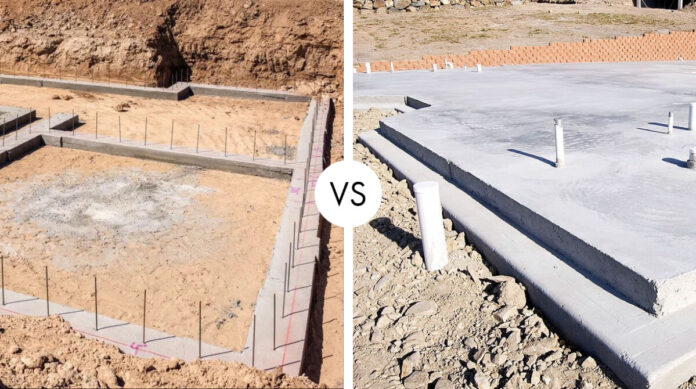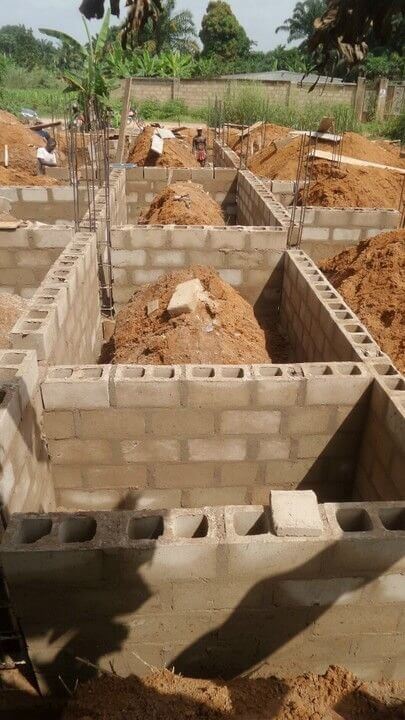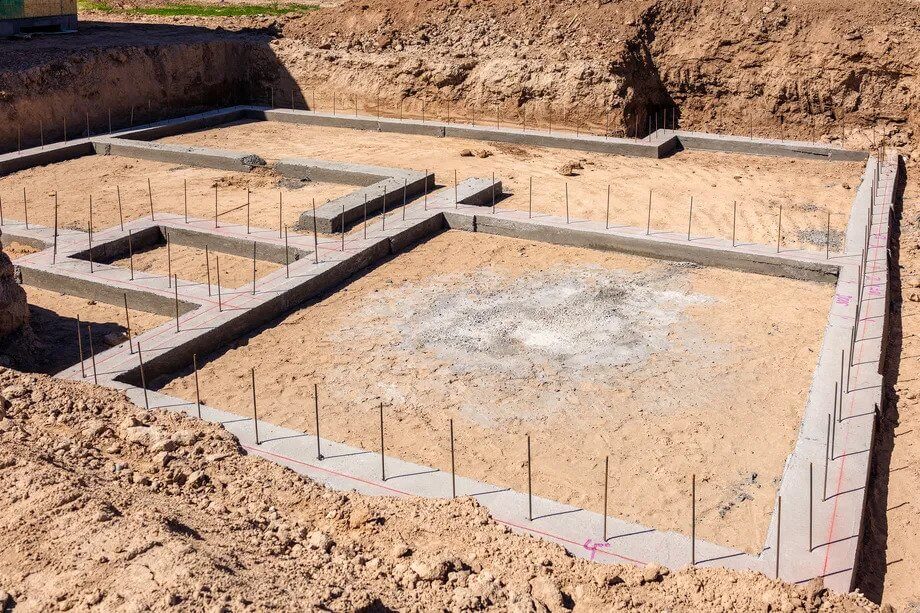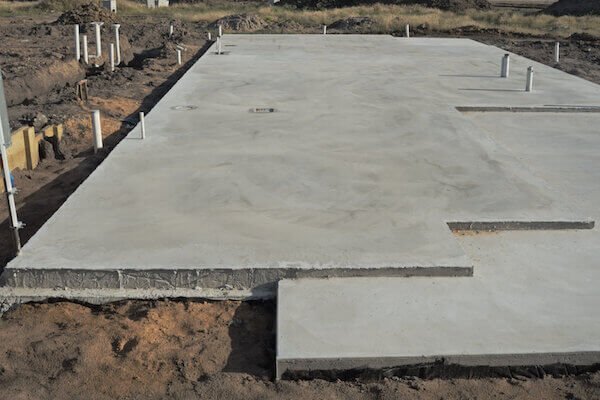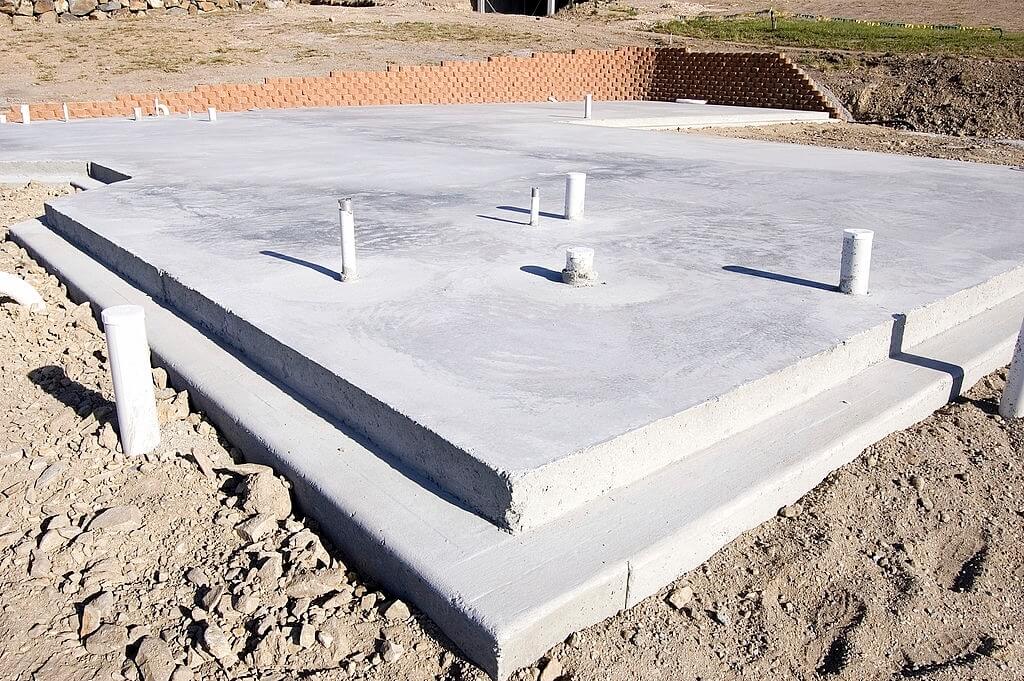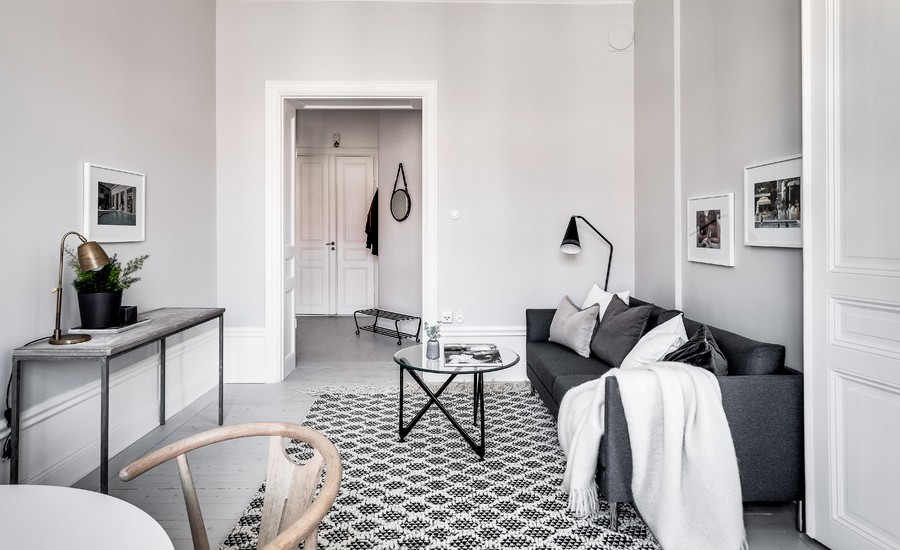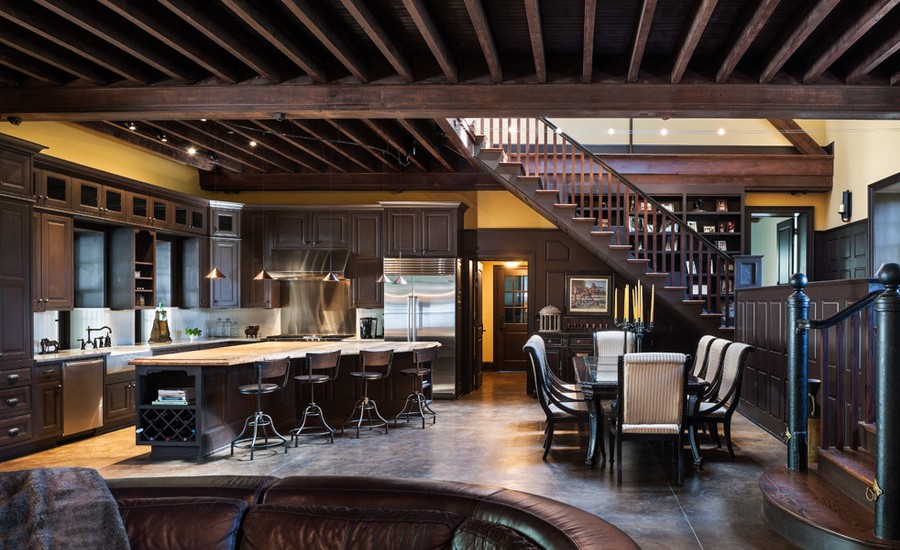Concrete Slab versus. Average Cost of a House Foundation
Crawl space foundations, also known as house foundations, provide simpler access to plumbing and electrical beneath the structure but are more expensive, ranging between $8,000 and $25,000. Concrete slabs cost between $4,500 and $12,000 on average, with rebar-reinforced stem concrete slabs costing between $7,000 and $21,000.
Cost of House Foundation vs Concrete Slab
The cost of a home foundation or crawl space is determined by the number of footers required (which considers the number of foundation corners) and the height of the crawl space in the case of crawl spaces.
Following are the Pros and Cons of House Foundations
A classic house foundation is elevated from the ground, with footings to support the structure and a crawl space underneath. Some advantages and disadvantages come with choosing a house foundation over a slab.
| Pros | Cons |
| Easier access to utilities – A elevated foundation allows more accessible access to the home’s plumbing and wiring. In the long term, you’ll save a lot of money on utility bills and maintenance. | Building costs more – Raised foundations are more expensive to build, costing an extra $10,000. |
| Lower flood risk – Because homes built on raised foundations are elevated, they are less likely to flood. | Takes longer to make – The process takes longer since raised foundations are more challenging to construct. |
| Comfortable floors – Wooden beds with a raised foundation are preferred over concrete because they are softer and more comfortable to walk on. | Moisture issues – Water and humidity can accumulate in your home’s crawl space, causing fungus development and damage. |
| Aesthetically pleasing – Most people like the appearance of a home that is elevated above the ground level. | Unwanted pests – Termite infestations are common in the area beneath your home. It can also be used to house unwanted animals such as possums and skunks and their waste. |
How Much Does a House Foundation Cost?
- The typical cost of beam supports, concrete, and other supplies for a 1,500 square foot crawl space foundation with six foundation corners is $4,800.
- A ramp, which costs between $1,500 and $3,250, can be added to this same crawl space to improve mobility.
- The average cost of labor for this type of foundation is $12,600.
Pros and Cons of Concrete Slabs
Concrete slabs are flat slabs of concrete reinforced with iron rods or rebar and poured directly on the ground. Basements and crawl spaces are not possible with slab foundations.
| Pros | Cons |
| More robust floors – Because slab foundations are built of concrete, they are more stable than raised foundations. You’ll never have to worry about oversized items like waterbeds or grand pianos colliding with the floor. Slab foundations are also less likely than other forms of foundations to decay, droop, or creak. | Difficult to access utilities – Plumbing, electric wiring, and ducting flow beneath the concrete slab in a slab foundation. This necessitates time-consuming and costly repairs and adjustments. |
| Costs less to build – Homes built on slab foundations cost roughly $10,000 less to make on average. | Greater flood risk -Because slab foundations lay directly on the ground, they are more prone to flooding. IIn some flood-prone areas, slab foundations are prohibited. |
| Faster to construct – It takes less time to build a slab foundation than it does to construct a raised foundation. You’ll be able to start living in your new home sooner. | Not as comfortable – Concrete is extremely hard and uncomfortable to walk or sit on. Walking on such a rough surface might wear down your joints over time. Homes built on slab foundations are also colder. |
| Not as aesthetically pleasing – Many people believe that ground-level residences are less attractive than raised-level homes. |
How Much Does a Concrete Slab Cost?
The cost of a concrete slab foundation is determined by the location of the home, its layout, and its size.
- The typical cost of a concrete slab for a one-story, 1,500 square foot residence is $3,200 in concrete and other components.
- The typical cost of labor for this slab is roughly $7,000.
It’s worth noting that the costs of home foundations and concrete slabs do not include the fees of electrical installation, plumbing, or pest control.
Foundation Installation
Whether you’re building a typical house foundation or a concrete slab, it’s always preferable to have an experienced contractor prepare the site and install the foundation for you. Some rules and regulations must be observed for legal and safety reasons, and a professional assures that the job is completed appropriately.
Grading and lot preparation are usually required for a home foundation or crawl space Because the foundation’s concrete footers must be level and secure. The gutter system and landscaping should direct water away from the crawlspace to eliminate moisture concerns, and grading should be done to avoid buildup. HVAC ductwork, plumbing, and wiring are typically installed in the crawl space with a classic foundation/crawl space.
It must be leveled and thoroughly prepared to verify that the soil beneath the concrete slab foundation is stable and uniform. To prevent moisture collection, grading must be done to ensure that water drains away from the slab. Before the concrete is poured, iron rods or rebar are installed to add strength and prevent shrinkage. Before the pour, all necessary electrical conduit and plumbing are installed. Instead of running through the flooring, most slab foundation homes have HVAC ductwork go through the attic.
Basements Prices and Considerations
A basement provides square footage for less money than expanding other areas of your home, but it is more expensive than alternative foundations. The cost of a new basement ranges from $18,000 to $30,000. Many people leave their basements unfinished to save money on refinishing costs, typically from $6,500 to $18,500.
Overall, the cost of your basement will be determined by the size of the space, the number of entries, and the materials utilized to build it. In general, extensive cellars come at a higher cost. When choosing materials for your basement, keep in mind that cinder block basements might leak over time. Poured concrete is more durable and resistant to moisture.
Consider if you want an outdoor entrance or one that is solely accessible from the inside of the house. A secondary door makes it easier to enter the basement, but it costs more and adds another entry point for floodwaters. If you’re building a basement, ensure you have adequate drainage to keep moisture and water out.

